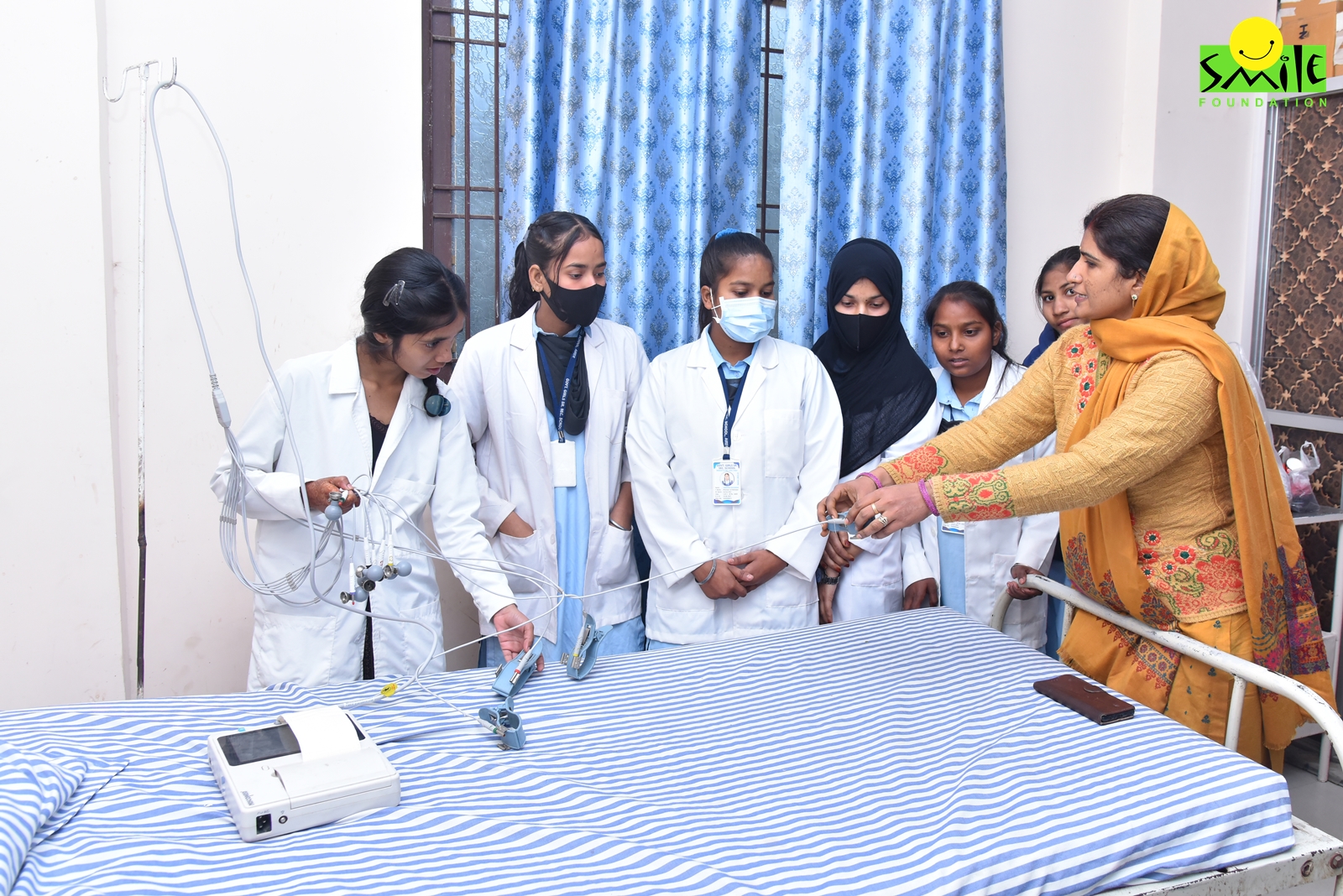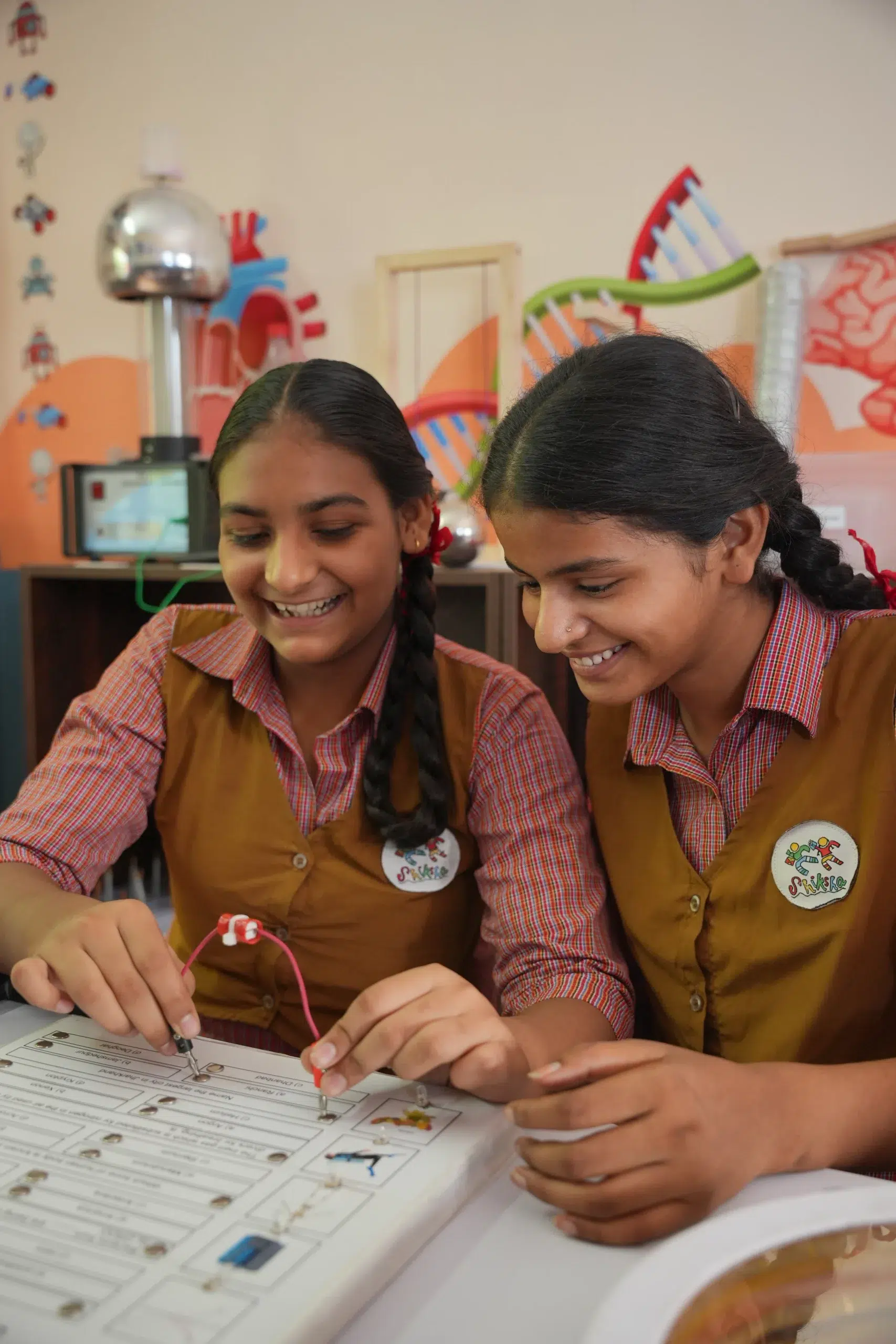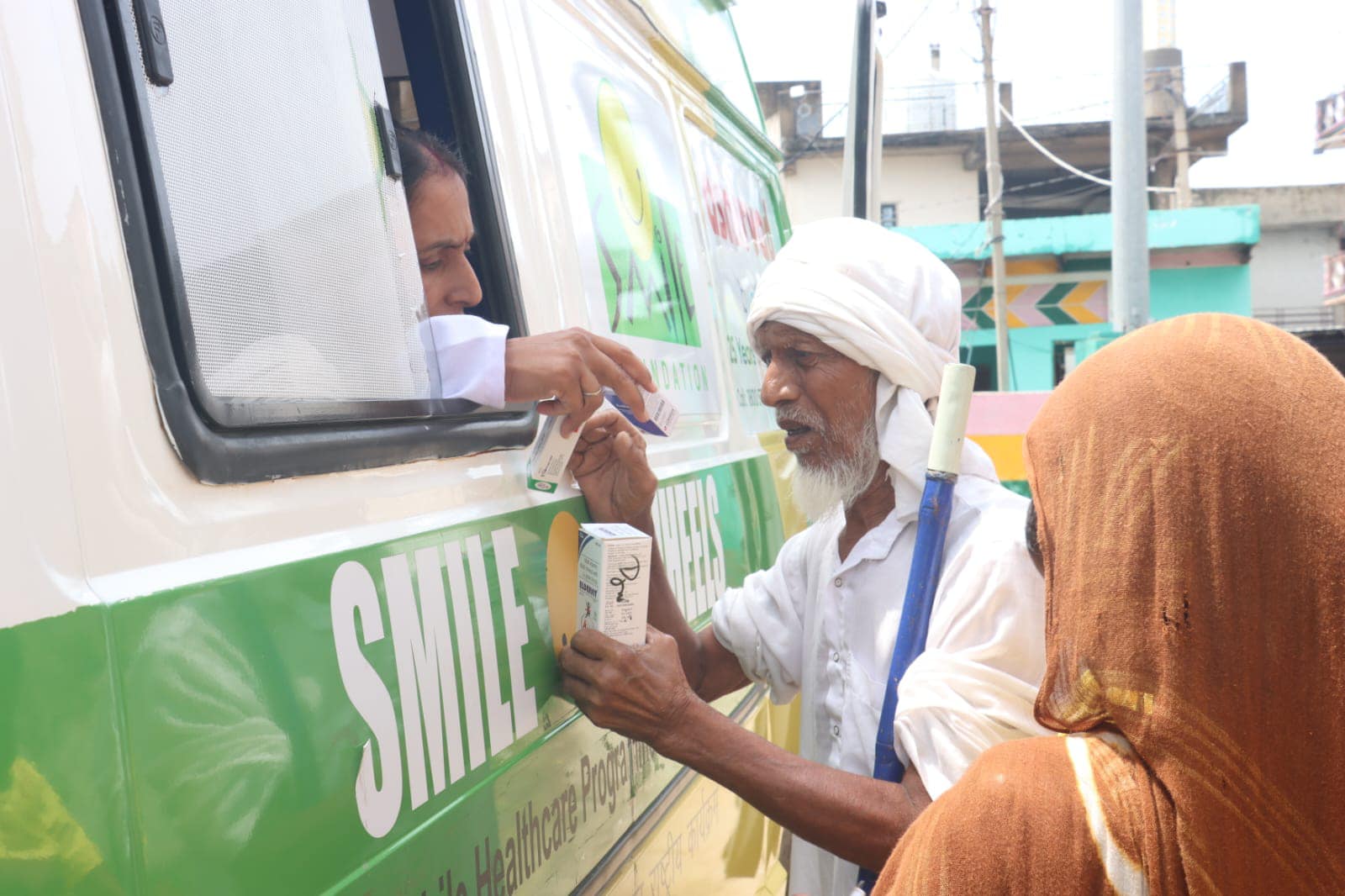When you ask young girls about their dreams, many say, doctor, teacher, policewoman, actress, or air hostess. Dreams don’t get fulfilled on their own. They need grit, determination, solid support, and mainly, resources that will embolden them to dream yet bigger.
For girls of low-income families in India, these dreams remain distant without education. Education not only ensures that they get livelihood opportunities to make their lives better, but in the process, makes them better humans too by teaching important life lessons.
Even today, girl child education in India stands at 62.3 % – a number not so promising when you compare it with other nations. The situation is alarming for girls in rural India, who still don’t get to complete their education because of societal pressure, dropping out of school due to financial constraints of the family, child marriage and lack of access to hygiene products.
Looking at this, one can understand that the future of girl child education is still navigating uncertain challenges. The pressing question is: When will these girls have the opportunity to dream of becoming something in their lives? Will they confidently see themselves as doctors, engineers, teachers, air hostesses, pilots, or even politicians?
The Government of India through its changing political alliances and faces has implemented policies to ensure every girl child exercises her fundamental right to education and empowerment. Initiatives like “Beti Bachao, Beti Padhao” promote gender equality and education, addressing issues like female foeticide and improving school access nationwide. Additionally, schemes such as the Sukanya Samriddhi Yojana encourage financial savings for girl child education. The CBSE Udaan Scholarship supports meritorious girls in STEM preparing them well for their careers.
The National Scheme of Incentives to Girls for Secondary Education aims to increase enrollment and retention rates through incentives. Furthermore, the Kasturba Gandhi Balika Vidyalaya Scheme establishes residential schools in rural areas to provide educational opportunities for underserved girls. These efforts aim to bridge the gap in access to quality education, opening up pathways for girls that restricted and caged them taking away their decision-making power in the past.
Another question arises out of this situation – Is this enough to empower all the underserved girls of India with the power of quality education and vocational skills?
CSR in India- The hope of underserved girls of India
Corporate social responsibility programs by some big players like KC Mahindra Education Trust in partnership with Naandi Foundation, provide comprehensive support to underprivileged girls including academic resources, school supplies and digital tablets with educational content. The project emphasises community engagement to promote girl child education and has significantly reduced dropout rates with a high retention rate of 90%. Over 350,000 girls have benefited, showing improved learning outcomes and fostering a safer educational environment.
Furthermore, The Girl Child Education Programme (GCEP) by IIMPACT, supported by Konecranes and Demag Private Limited, focuses on empowering girls aged 06-14 with quality primary education up to fifth grade in Uttar Pradesh and Odisha. It has transformed attitudes towards girl education in rural communities, encouraging greater parental and community support.
Concurrently, Intuit RISE, Intuit India’s CSR initiative, sponsors education for girls from disadvantaged backgrounds, including those from dysfunctional or single-parent families. To educate 1000 girls, the program not only provides academic support but also aims to dismantle societal barriers. The initiative fosters aspirations among girls to become change-makers, offering mentorship from female engineers at Intuit, and highlighting opportunities in tech fields. As 215 girls have already completed their 10th standard under the program, it underscores a commitment to creating educational opportunities and empowering girls to thrive as leaders in society.
Such CSR programs have become the cornerstone of CSR in India. Their positive impact has not only empowered the lives of thousands of underserved girls in India, but has also become a guiding force for many other corporates to dive into the pool of CSR NGO partnerships to amplify their efforts towards boosting female literacy.
How should CSR programs invest in girl child education?
The focus should be on creating an ecosystem where girls feel safe, confident and motivated to complete their education – all leading to self-reliance.
For example, CSR initiatives for developing girls education in India can be strategised in the following ways-
- Developing Infrastructural Support
In rural India, schools often lack adequate infrastructure, particularly for girls. Corporates can improve this through CSR initiatives like digital libraries, solar-powered structures, rainwater harvesting and hygienic washrooms. These upgrades create a conducive environment for girls to focus on learning comfortably.
In Meghalaya, through our CSR partnership, we are equipping schools with solar panels and digital classrooms through which all students, including girls get an environment that helps them to achieve holistic learning.
- Digital Access & STEM Education
By investing in technology and educational programs, CSR empowers girls with digital skills, preparing them for STEM and broader career opportunities, and inducing long-term socio-economic empowerment.
Understanding the importance of STEM education and digital education, Smile Foundation and Grant Thornton Bharat have partnered to empower young minds through STEM labs, interactive classes, teacher training, career counseling and health education that will help several girl students with quality education in a safe and supportive environment.
- Vocational Education
With the introduction of NEP 2020, the Indian education system now emphasises blending theoretical knowledge with vocational training for job-readiness. Corporates with a bent towards gender-focused thematic areas should partner with vocational programs to empower rural girls with skills for dignified earning and self-reliance.
Project Manzil, a collaboration between IPE Global Limited and Smile Foundation, stands out as a leading girls-centric vocational training initiative in India. It has trained numerous young girls in Rajasthan with skills in IT, healthcare, beauty & wellness, tourism and hospitality.
Rekha Prajapati, successfully trained under Project Manzil, exemplifies its impact. Overcoming challenges, she pursued vocational hospitality training and now works at a hospital in Rajasthan, free from the shadows of social evils, with hope for a sustainable future for herself and her family.
CSR NGO Partnership with Smile
CSR programs advance girl child education in India by addressing barriers like access to quality education and socio-economic empowerment. Through partnerships with Smile Foundation, corporates can effectively implement initiatives that provide educational opportunities, vocational training and life skills to underserved girls, liberating them from societal constraints.
Our framework around transparency, accountability and impact assessment ensures that CSR funds are utilised efficiently, making a significant difference in the lives of many girls across India. We believe that when girls go to schools and colleges, they change the world. Help our girls do better and see them giving their best.









